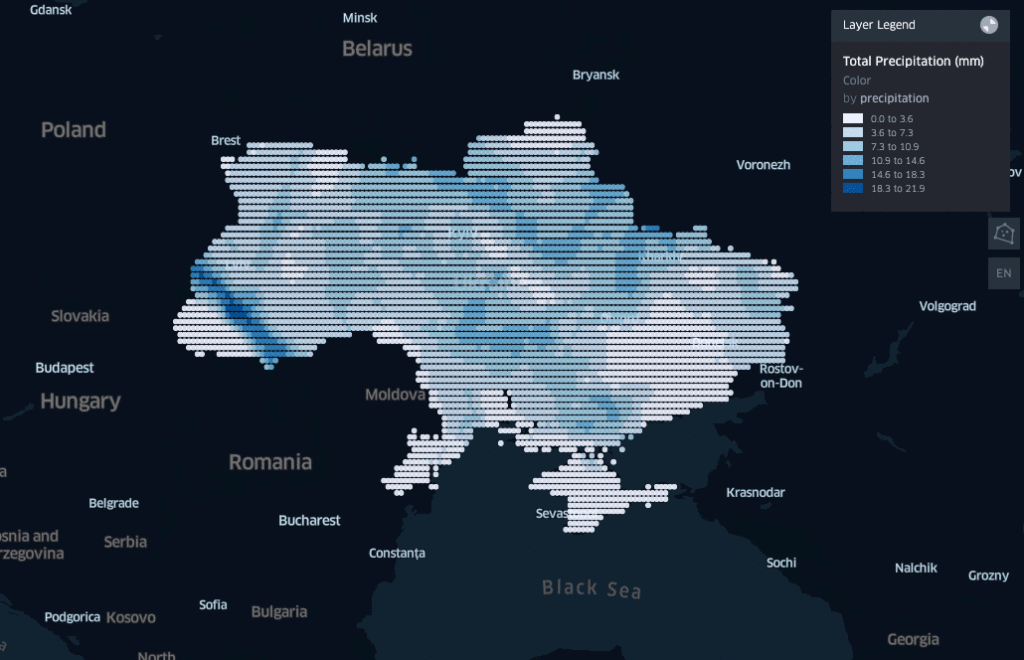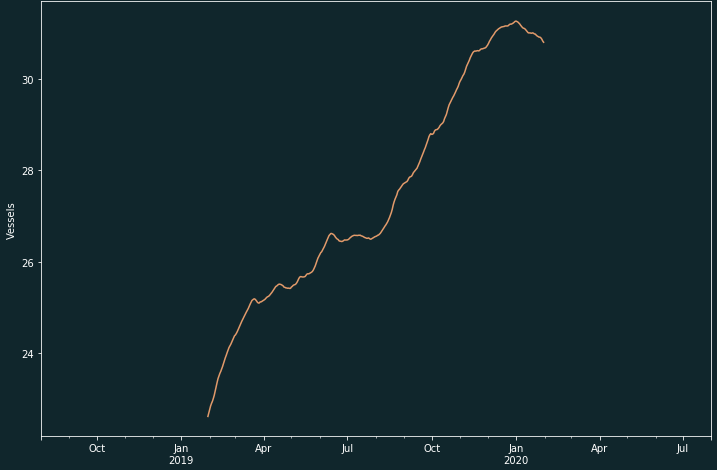Dry bulk tracking shows positive outlook for EU wheat exports despite covid and drought
Interested in this FREE data set?
Last March, nations around the world considered the most effective ways to mitigate the impacts of COVID-19 within their borders. Some countries, like Ukraine, had additional challenges such as a prolonged drought. When the Ukrainian Ministry for Development of Economy, Trade, and Agriculture announced in April that the country would limit grain exports to ensure adequate domestic supply of wheat to stabilize domestic bread prices, we expected to see a drop in large vessel traffic at Ukrainian ports and we began using our weather forecast data to track rainfall and soil moisture to see what wheat crops might look like moving forward.
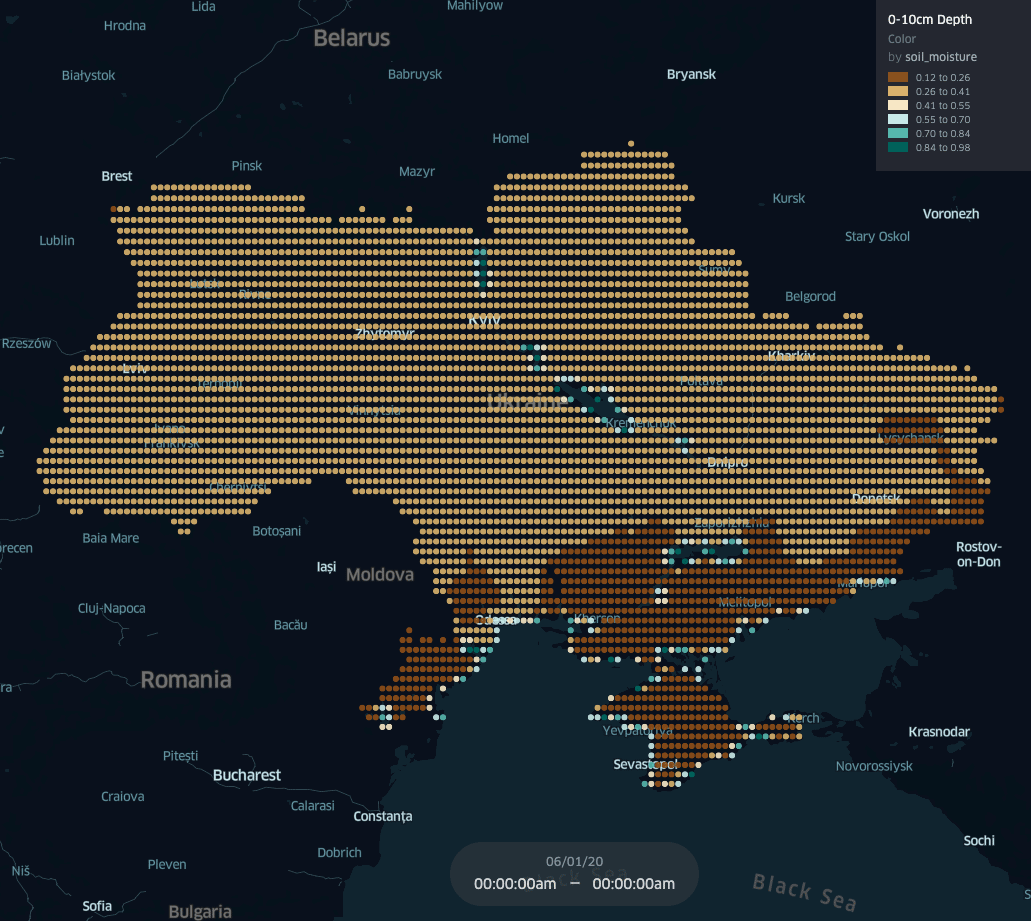
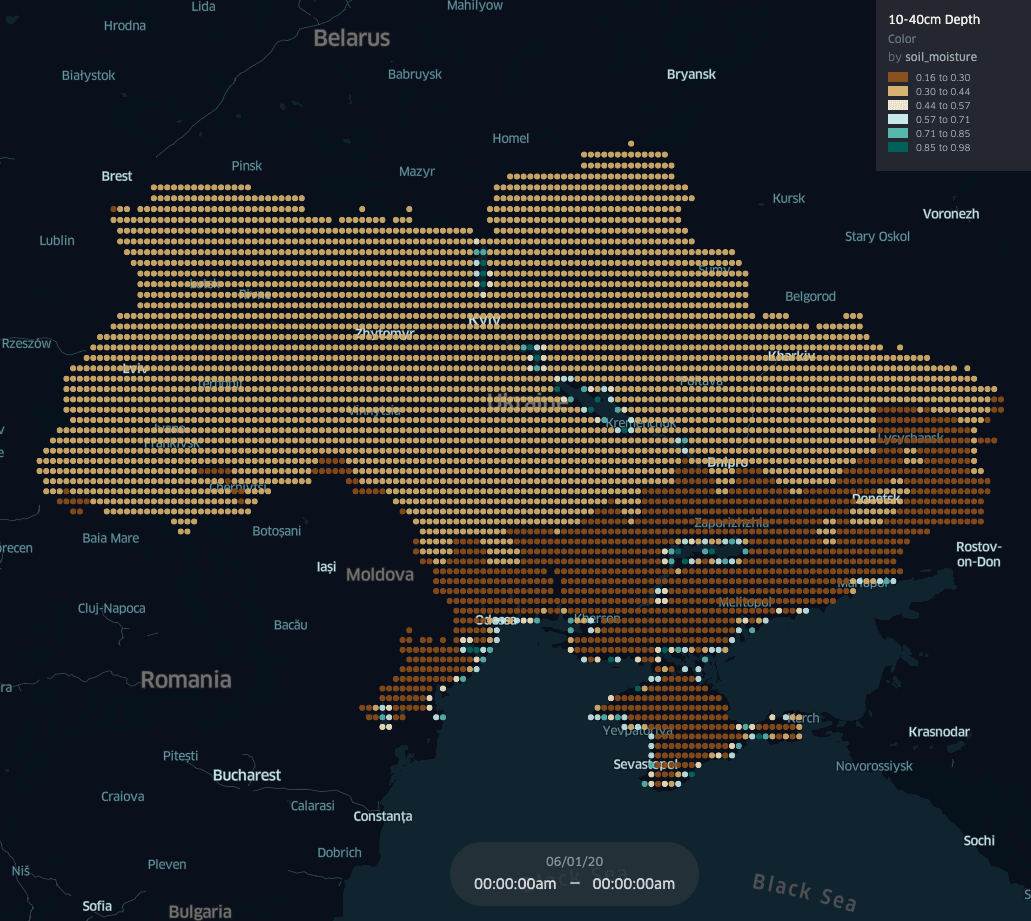
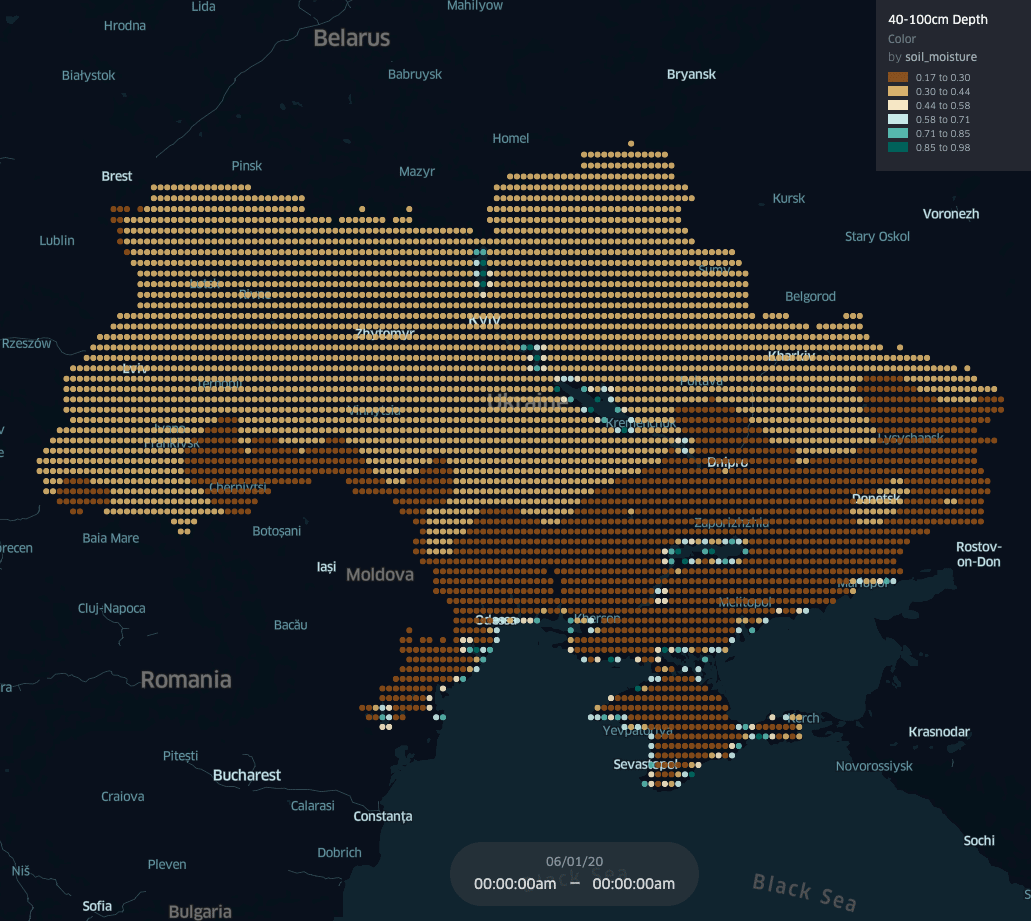
In the above data plots, we compared early April soil moisture levels at various depths (left) to early June soil moisture levels (right). Spire’s data shows an increase in soil moisture between these times, after favorable rains in May:
We pulled data from the last 12 months and what we found was surprising: More capesize vessels are traveling Ukrainean waters over the last few months when compared to the same months in 2019. Even more interesting were the robust numbers of fleets in March and April responding to a bustling wheat export season marked by a nearly 50% increase in wheat exports, with Egypt and China as the two leading importers.
Grain exports (wheat, corn, and barley) also show increases in tonnes shipped for this season. According to the FAO, “Improved rains from early May increased soil moisture levels and benefitted crop establishment.” These improved hydrological conditions, corroborated by Spire’s Weather data, have positive implications for the fall harvest.
Bulk Ships in Northern Black Sea and Dnieper River
Cape Size (>100,000 DWT) Bulk Ships in Northern Black Sea and Dnieper River
Handy Size (<60,000 DWT) Bulk Ships in Northern Black Sea and Dnieper River
Will a drought plus a covid export ban mean the fall harvest will be better than expected due to heavier than average rainfall? Let us know what you think.
